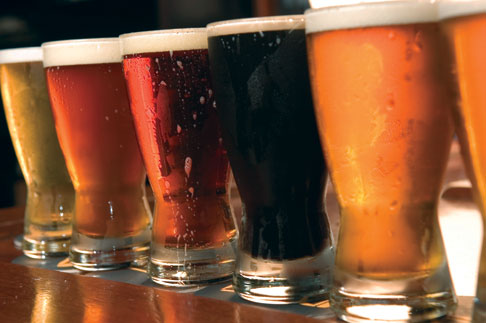I’m not saying they invented beer. But the beers we enjoy today are a lot better because of the work they did to support themselves, and evangelize. Evangelize?
If you love beer, thank a monk. Monks have been producing beer for 1,500 years, and in that time, they have revolutionized and perfected the beer-making process.
The history of monks and beer begins early in the sixth century when Benedict of Nursia wrote a template for monastic life called The Rule (later known as The Rule of St. Benedict). One of Benedict’s directives was that monks should earn their own keep and donate to the poor by the work of their own hands. In the centuries following, monasteries have produced goods to sell, including cheese, honey, and, of course, beer.
Beer production served other purposes too. The Rule outlines the monastery’s obligation to show hospitality to travelers and pilgrims. Beer was safer to drink in medieval times than water contaminated by sewage, and therefore was served to visitors. Beer was also helpful to monks in getting through periods of fasting in Lent and Advent. Beer’s nutrients earned it the nickname “liquid bread.”
In the Middle Ages, monks introduced regulation and sanitary practices in their breweries. They also extended the life of beer by adding hops, which acts as a preservative.












